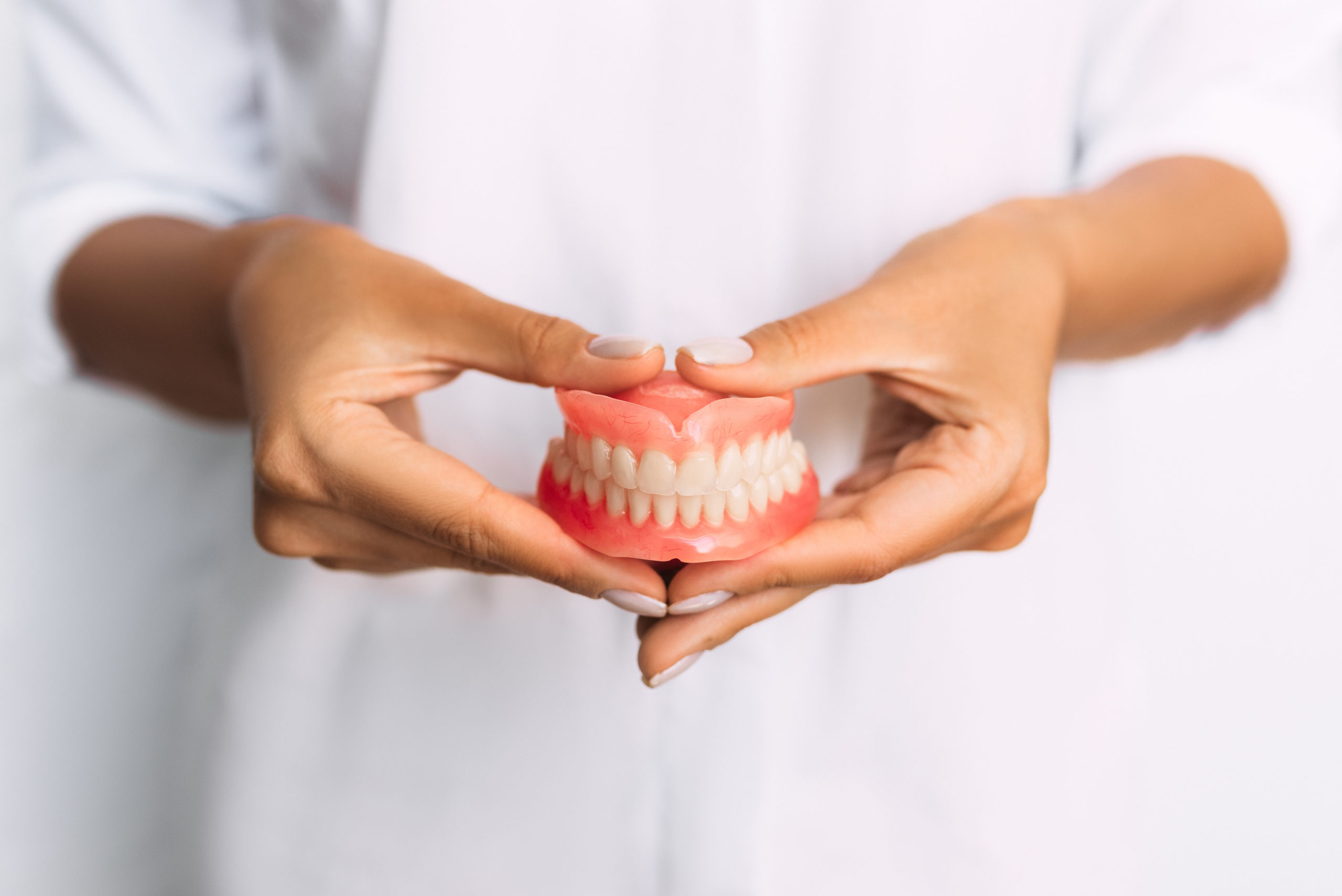
All About Dentures
Dentures are an effective way to restore your smile if you are missing multiple teeth. While the prospect of transitioning from your natural teeth to a removable appliance can be daunting, the use of artificial teeth and gums allows many people to regain the ability to eat without pain, and smile confidently. According to the American College of Prosthodontists, approximately 23 million people in the U.S. are completely edentulous (lacking teeth) and about 12 million are edentulous in one arch.
If you have significant tooth loss, you may be a good candidate for dentures. At Artistic Touch Dentistry, our caring dentist will help you find the best solution for your tooth loss. Dentures are not for everyone, but in many cases, can help patients restore the function and aesthetics of their smile.
Defining Dentures
Dentures are an artificial replacement for natural teeth. What makes them different from many other types of tooth replacement options is that they are not permanently attached to the natural teeth or jawbone. Dentures are best suited for patients who have many teeth missing. A lost tooth requires an anchor, usually natural teeth. This means that if multiple teeth on the same row are missing, dentures may be the only viable solution. If you fail to replace your missing teeth, facial muscles may begin to sag making you appear older.
Types of Dentures
There are two main types of dentures available: complete and partial dentures. Complete dentures may be “immediate” or “conventional.”
Immediate dentures are made before tooth removal and positioned as soon as the tooth removal process is completed. This prevents the wearer from having to go without teeth during the healing period. However, it is important to understand that tissues and bones shrink during the healing period. This can result in the need for more adjustments later on. Immediate dentures should only be used temporarily until a conventional appliance can be made.
Conventional dentures are ready to be placed in the mouth approximately eight to 12 weeks after the teeth have been removed. By allowing the gums and bones in the mouth sufficient time to heal before placing the dentures, minimal adjustments will likely be needed. The one downside to using conventional dentures from the get-go is that the wearer will need to go without teeth for a several month period.
Partial dentures are also common among the edentulous community. A partial denture is made up of artificial teeth attached to a gum-colored or pink plastic base. In some cases, a partial denture is also attached to a metal framework that secures the denture in the mouth.
A partial denture may be recommended if one or more natural teeth remain in the lower or upper jaw. If some natural teeth remain, crowns can be placed on the teeth on either side of the space. This fixed bridge has artificial teeth that fill the spaces from missing teeth. This can help prevent the remaining natural teeth from shifting.
Making Dentures
It can take several weeks to make dentures and the development and fitting process is often done over several appointments. Once your dentist determines the best appliance for your unique case, a series of impressions will be made of your jaw. Next, models or wax forms in the exact shape and position of the denture will be created. You can try on this model to determine the right fit. The last step involves casting the final denture and making adjustments as necessary.
Using Dentures
New dentures often feel loose or “weird” for the first several weeks. This is normal as it takes time for the muscles in the tongue and cheeks to learn how to keep the appliance in place. You may also experience minor irritation during the first few weeks, as well as increased saliva flow. These side effects should diminish as your mouth adjusts.
As dentures are designed to look like your natural teeth, there should not be a major change in your appearance. Depending on the condition of the natural teeth that were removed, they may even improve your smile and fill out your face.
Eating with dentures takes practice. It is best to start by eating soft foods cut into small pieces. Once your mouth has become more accustomed, you can return to a normal diet. If you are looking into dentures for yourself or a loved one, contact us today to learn more and find out if you’d be a good candidate!

